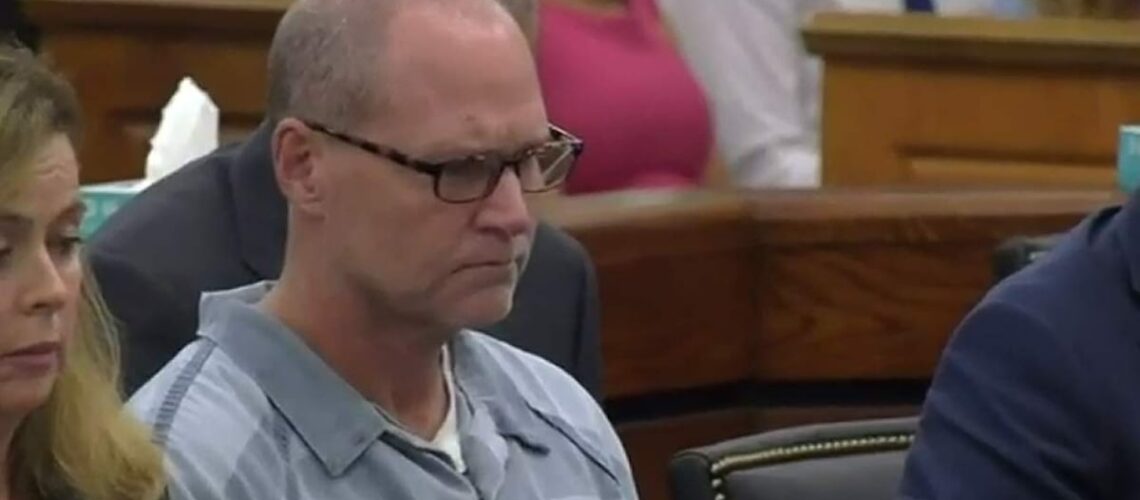Fleming held liable in Murdaugh in insurance scheme, law firm dismissed
January 8, 2025

- Animosity towards health insurance is nothing new, expert says
- Thousands of Los Angeles homeowners were dropped by their insurers before the Palisades fire
- Loop North News – Wave of rising insurance costs swamps Chicago homeowners
- What a CEO Shooting Can Teach Nonprofits About Our Health Insurance Mess – Non Profit News
- ‘Would he have lived?’ When health insurance companies deny cancer care to patients
CHARLESTON, S.C. (WCSC) – A jury has held Cory Fleming, a known Murdaugh conspirator, liable in a civil insurance scheme complaint while finding his law firm at the time not liable for his actions.
Bạn đang xem: Fleming held liable in Murdaugh in insurance scheme, law firm dismissed
The issue dates back to 2018, when Murdaugh housekeeper Gloria Satterfield suffered injuries on their property, and later died. In the wake of her death, Alex Murdaugh approached Cory Fleming to represent Satterfield’s sons in a wrongful death insurance claim against him.
Murdaugh explained the reason for the claim is that he spoke to Satterfield after her fall, and she told him the family dogs caused her to fall, creating liability on his part. The insurance company says Murdaugh created ‘the perfect story’ with him as the only witness to the conversation with Satterfield, making it hard to refute as long as he held firm.
According to Fleming, Murdaugh said he wanted to provide for the Satterfield boys who were like family through the payout. Later, Murdaugh admitted on the stand during the murder trial of his wife and son, that he fabricated the story leading to the insurance claim, and his intention was to steal the payout from the sons from the start.
Xem thêm : How to Appeal Insurance Denials, Abolish Medical Debt, and Fight for Medicare for All
Since learning that information, Nautilus Insurance who issued the $3.8 million payout has come after Murdaugh, Fleming and Fleming’s then law firm for collusion to earn the payout money. Federal Judge Richard Gergel ruled against Murdaugh and ordered him to pay $14.8 million in damages to Nautilus insurance.
Fleming and the firm, now referred to as Moss and Kuhn chose to take their cases to trial, resulting in liability for Fleming and a verdict of not liable for Moss and Kuhn. The jury awarded Nautilus Insurance $1.25 million in actual damages for Fleming’s role in their $3.8 million claim payout.
Nautilus began their case by accusing Fleming of conspiracy, unfair trade practices, breach of contract and breach of fiduciary duty. The insurance company also began by accusing his law firm, now referred to as Moss and Kuhn, of conspiracy, unfair trade practices and negligence.
During the three-day trial, Judge Gergel decided to essentially throw out the breach of contract, breach of fiduciary duty and negligence accusations. Gergel granted motions for a directed verdict, meaning he directed the verdict to be not-liable since he didn’t see enough evidence to warrant the jury considering those accusations. Instead, the jury considered conspiracy and unfair trade practices against Fleming and Moss and Kuhn.
Throughout the trial, Nautilus Insurance’s lawyers held that this is a case about conspiracy and concealment. They argued that Fleming and Murdaugh hid their collaboration on the case from the insurer under the guise of benefitting the Satterfields, while ultimately benefiting themselves. And, as the firm responsible for Fleming and his cases, Moss and Kuhn are vicariously responsible for his actions.
The accusers, Nautilus showed receipts of checks where the insurance payout went to a bank account called “Forge.” At the time, Fleming said he assumed that it referred to a structured settlement company called Forge LLC. Murdaugh later admitted it was a personal account he held, that he named “Forge” to mimic the company and deposit checks to himself, appearing as a settlement investment. Nautilus told the jury, that Fleming should have known better, and showed them an email between Fleming and real Forge LLC from a year before the case, explaining how structured settlements worked.
Xem thêm : Why new homes could be affordable solution to insurance costs
Throughout the trial, Fleming maintained that he worked with Murdaugh because he trusted him, and believed he had the Satterfield boy’s best interests at heart.
Nautilus lawyers argued that had they known Fleming and Murdaugh were working together so closely behind the scenes, they would not have agreed to settle the case when they did. Nautilus belabored in closings that Cory Fleming lied throughout the case, about being in contact with the Satterfields about the settlement hearing, about when and how he heard the dog story and about checking with “Forge” about the insurance payout.
In his defense, Fleming’s lawyers maintained he had nothing to do with the details of the insurance policy, the claim or the story that created the claim; that was all Murduagh. Fleming and his representation admitted throughout the trial Fleming wronged the Satterfields by cutting checks in a way that stole from their payout, but he is paying for that crime in prison. Fleming maintained he did not defraud the insurance company or injure them through his actions in this process.
The insurance company also argued Fleming’s firm at the time was liable for his actions, accusing them of conspiracy and unfair trade practices also. Fred Kuhn testified at the trial that all of Fleming’s deceitful actions were for his personal benefit, not for the firm, and they never noticed any red flags with his work. After learning of issues, Moss and Kuhn returned the money to the Satterfields out of pocket to make their former client whole and cooperated with criminal investigations into Fleming. He says those investigations didn’t find any wrongdoing by the firm.
The jury is also deliberating punitive, or punishment damages, for Fleming to pay.
Copyright 2025 WCSC. All rights reserved.
Nguồn: https://propertytax.pics
Danh mục: News
